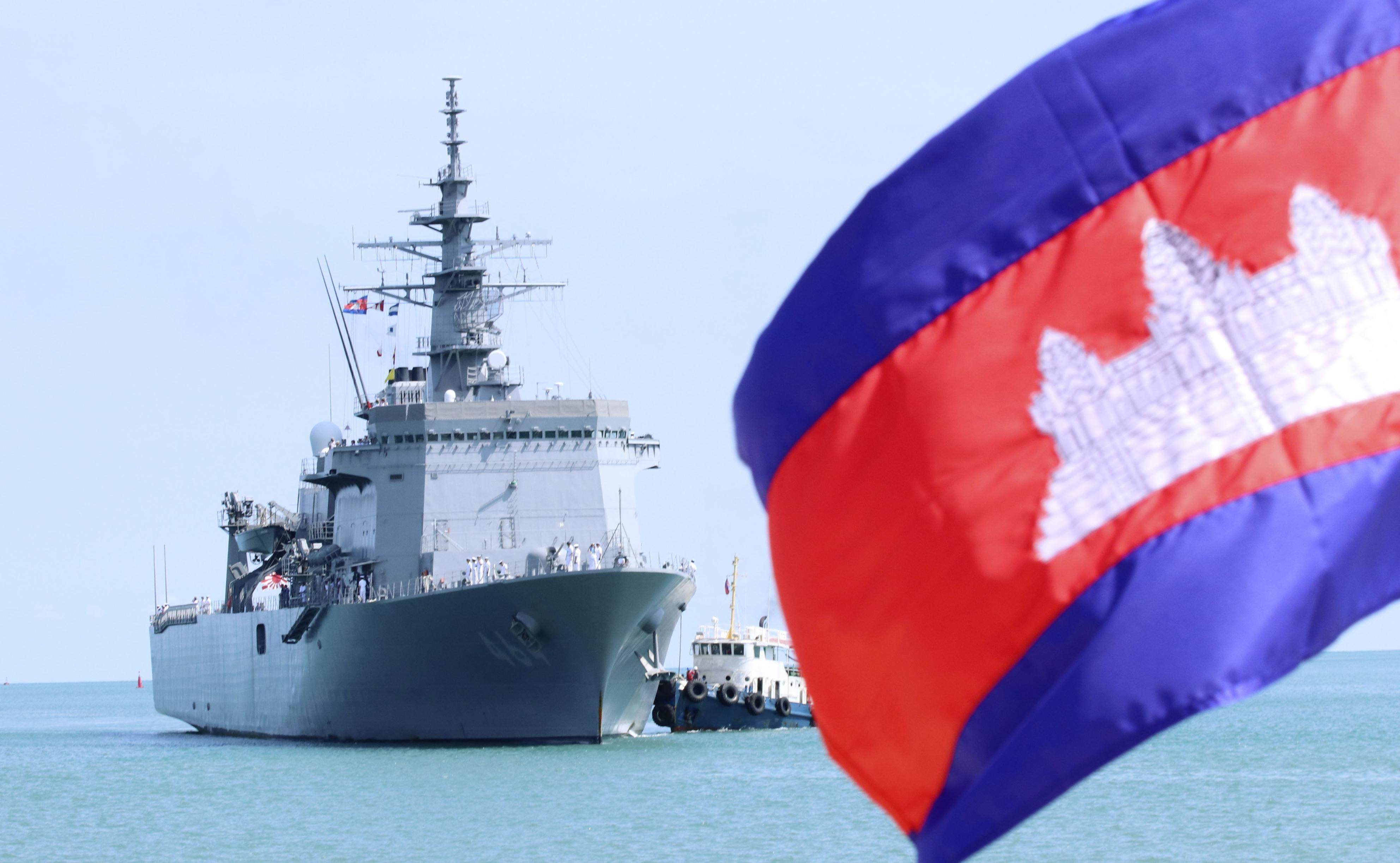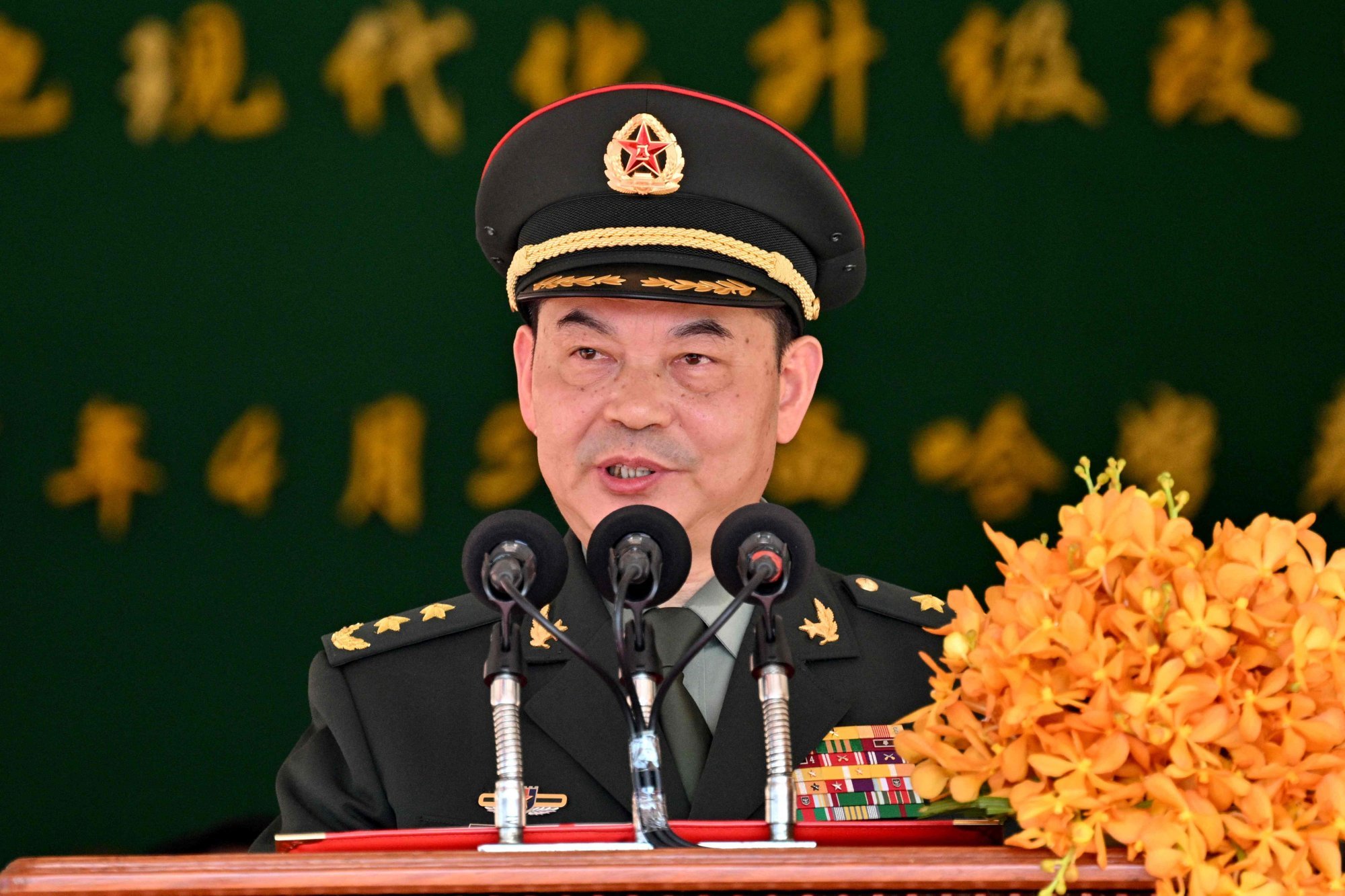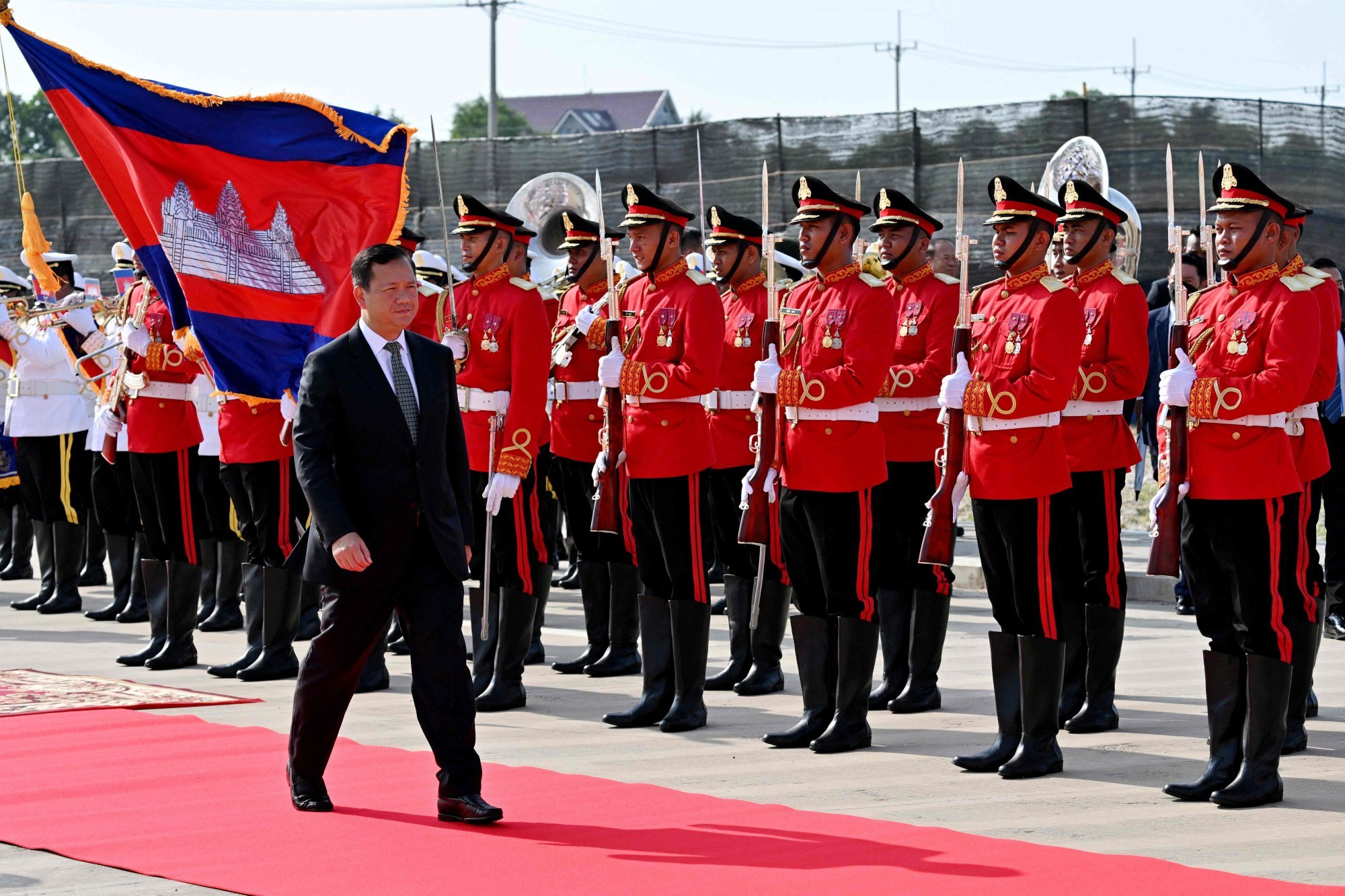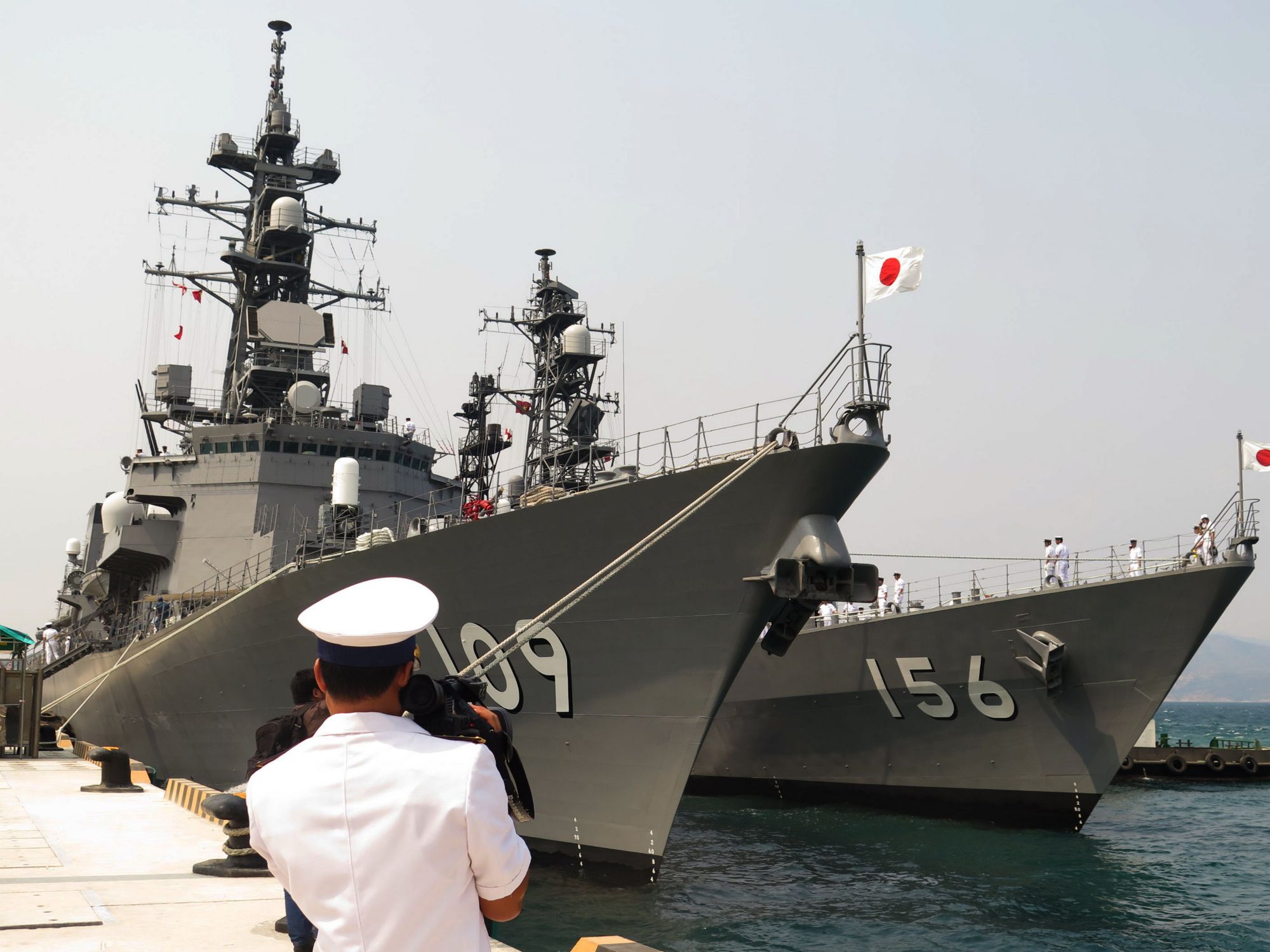Cambodia widens access to China-funded Ream naval base to parry ‘lingering suspicion’
Recent visits by ships from Vietnam, Russia and Japan at Ream are aimed at deflecting views of China’s ‘preferential access’, analysts say

Cambodia’s move to expand access to its Ream naval base to more countries can help deflect criticisms that the Southeast Asian country is hosting a Chinese military facility, even as analysts have warned of “lingering suspicion” about Beijing’s intention.
On April 27, a Vietnamese navy warship docked at the Chinese-funded Ream, according to reports from Cambodian media.
The 37 crew members of the Russian-built vessel reportedly took part in a meeting to discuss a joint patrol alongside the Cambodian navy from April 27 to April 29.
The Vietnamese warship’s arrival came on the heels of the arrival of two Japanese naval vessels at Ream following the inauguration of the upgraded naval base last month.
China is said to have financed the upgrading since 2022, including a 300-metre deepwater pier, a 5,000-ton dry dock, a 1,000-ton slipway, and a facility for logistics and training.
Timothy Heath, a senior international defence researcher at the US-based Rand Corporation, said Cambodia’s decision to welcome other navies could help counter the criticism that Cambodia was hosting a Chinese military base.
“More likely, Cambodia is offering access to Ream to many navies, not just China,” Heath said.

Abdul Rahman Yaacob, a research fellow at the Lowy Institute’s Southeast Asia programme, said Cambodia had taken steps to show that Ream was not for China’s exclusive use.
The Vietnamese vessel’s visit was part of Cambodia’s effort to maintain stable defence relations with its immediate neighbour, which might have concerns regarding Beijing’s influence over Phnom Penh, he added.
“However, there is still lingering suspicion that the Chinese will have exclusive access to Ream,” Rahman said, adding that some regional countries harbour suspicion that China might have preferential access due to its financial and material support.
“Preferential access to specific major powers is not uncommon.”
“We have the Russians having preferential access to the Vietnamese military facilities in Cam Ranh Bay while the US has preferential access to Singapore’s Changi Naval Base,” Rahman added.
Concerns over China’s role at Ream surfaced in 2019, following reports of a draft agreement on a 30-year lease to allow the stationing of its military personnel, weapons storage and warship access there. Cambodia has denied the claims, but Western countries especially the United States have raised concerns over the issue.
The training centre, in particular, had emerged as a source of concern, Rahman said.

Defence and intelligence officials from regional countries that he had spoken to “suspect China could use it to monitor military activities in the Gulf of [Thailand]”, Rahman added.
The Gulf of Thailand encompasses a semi-enclosed sea bordered by Thailand, Cambodia, Vietnam and Malaysia, and is a crucial maritime corridor.
Visit of Russian ships
On Monday, three ships led by Rear Admiral Aleksei Antsiferov, chief of staff of a division of the Russian Pacific fleet, docked at Sihanoukville. Carrying a total of 262 crew, the ships undertook a four-day visit and took part in sporting activities with their Cambodian counterparts at Ream.
Noting Russia’s important role in the region, Heath said that Moscow was a top arms supplier to Southeast Asian countries such as Vietnam, Malaysia and the Philippines.
“These countries view Russia as an affordable source of defence weapons,” Heath said, adding that Moscow was also involved in energy exploration and development in the South China Sea.
From 2004 to 2023, Southeast Asian countries spent over US$42 billion on weapons, with Russia accounting for 25 per cent of the amount. Sales had declined in later years, mainly due to the international embargo against Russia arising from its ongoing war in Ukraine, which began in February 2022.
Rosneft, which is partially owned by the Russian government, emerged in 2013 as an operator of a joint project for gas production and exploration activities off the coast of Vietnam.
The energy company has also worked with Vietnam since 2018 to expand gas development projects in the country’s exclusive economic zone, including drilling two new wells in the area.
Russia’s interest in projecting its military power in Southeast Asia was not new as it had sought access to Southeast Asian military facilities since the 1970s, Rahman said.
In the 1980s, the Russians established a military presence in the region through Vietnam’s facilities and “aggressively” projected its prowess in Southeast Asia, such as by testing the regional countries’ air defence systems, according to Rahman.
The Soviet Union, Russia’s predecessor state, signed a 25-year agreement in 1979 with Vietnam to lease Cam Ranh Bay, which became a key Cold War naval base for its Pacific fleet.

“Russia’s visit to Cambodia is therefore part of its strategy to maintain some form of military engagement with regional countries, given that Russia does not have the economic means to engage and influence the region,” Rahman added.
Russia’s trade with Asean totalled US$23 billion in 2023. In contrast, China trade with the Association of Southeast Asian Nations in the same year was US$911.7 billion.
Earlier this month, Indonesia denied media reports suggesting that it was allowing Russia to build an airbase in the eastern region of Papua.
The reports, originating from a defence publication, claimed that Russia intended to establish a military presence at the Manuhua Air Force Base in Biak, Papua, following meetings between defence officials from both countries.
The reports have sparked concerns about regional stability, particularly Australia, given the ongoing Russian invasion of Ukraine.
Additional reporting by Reuters